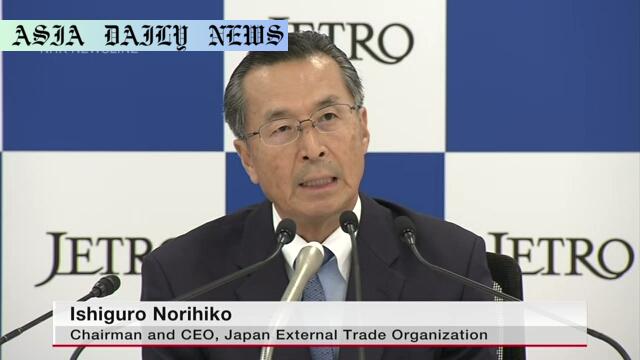JETRO offers consultancy services to help Japanese firms adapt to new US tariffs and find opportunities for growth.
JETRO will help firms navigate the new tariff agreement with the US effectively.
Creative strategies can ease the impact of tariffs on Japanese exports.
Consultations will be available nationwide to explain tariff details.
Supply chain evaluation is crucial as US tariffs differ across countries.

Introduction: JETRO’s Commitment to Support
The recently announced trade tariff agreement between Japan and the United States has emphasized a need for Japanese firms to recalibrate their strategies for exports. The Japan External Trade Organization (JETRO) has stepped up to assist companies in understanding the implications of these tariffs and capitalizing on available opportunities. With its nationwide offices offering consulting services, JETRO aims to ensure that Japanese businesses, especially those in sectors such as agriculture, forestry, fisheries, and food, can enhance their global competitiveness despite the changes in trade policies.
The Importance of Planning and Strategy for Japanese Firms
Understanding and planning around tariffs can mean the difference between profit and loss for Japanese businesses exporting to the US. According to JETRO chairman Ishiguro Norihiko, companies must approach this agreement with creativity to mitigate adverse effects. Through a comprehensive evaluation of supply chains, firms can reposition themselves to reduce exposure to specific tariffs and craft more efficient shipping and sourcing approaches. This strategic alignment requires careful analysis, which JETRO is primed to provide through their seasoned consultants in Japan and the US.
Supply Chain Reevaluation in Light of US Tariff Rates
One critical challenge to address is the variance in US tariffs depending on the exporting country’s origin. For Japan, this could mean a shift in trade flows, encouraging businesses to reevaluate and diversify their supply chains. Understanding the tariff structures and substituting imports where possible could not only aid Japanese companies in maintaining cost efficiency but also open new avenues for cross-border collaborations. JETRO’s guidance will be pivotal to navigating this complexity effectively.
Consultative Approach Tailored to Different Industries
JETRO’s nationwide consulting services will cater to diverse industries differently impacted by the tariff agreement. Businesses in agriculture, forestry, and fisheries, along with processed food producers, may face unique challenges and opportunities under the new trade framework. JETRO plans to tailor its advice and resources, leveraging its extensive trade expertise to meet specific needs, thereby enhancing the overall competitiveness of Japanese exports.
Conclusion: Embracing Change to Unlock Growth
The August 1 deadline for a trade agreement between Japan and the US signaled critical changes in the global trade landscape. While challenges arise from tariffs, firms that seize this moment to innovate and refine their operations can thrive in the long term. JETRO’s role as a guiding partner helps position Japan’s businesses on a trajectory of sustainable growth and success in international markets.
Commentary
JETRO as a Steadfast Ally to Japanese Exporters
The Japan External Trade Organization’s decision to actively guide firms through the complexities of the new US tariff agreement is a testament to their commitment to fostering economic resilience. In an era marked by geopolitical shifts, JETRO’s proactive measures highlight how organizations should operate as strategic partners for the industries they represent. The organization’s ability to foresee challenges and equip firms with resources will likely set a benchmark for similar trade bodies across the globe.
Mitigating Tariff Challenges Through Strategic Insights
The trade tariff agreement undoubtedly introduces hurdles for Japanese exporters, but it also opens up pathways for revolutionary change. The emphasis on reassessing supply chains and exploring exchange opportunities with other nations embodies the adaptability required for sustained economic growth. JETRO’s counsel in these aspects will help businesses not only survive but thrive, a critical consideration as international trade continues to become increasingly complex.
Empowering Industries to Stay Competitive Globally
Perhaps the most compelling aspect of JETRO’s intervention is its focus on industry-specific solutions. It acknowledges that no two businesses will experience the tariffs’ effects in the same way. This approach ensures that agriculture, food businesses, and other sectors feel supported in a uniquely demanding era for global trade. JETRO’s ability to serve as a bridge between national economic objectives and individual business aspirations will arguably help safeguard Japan’s premier place in international commerce.
Conclusion: The Broader Implications of JETRO’s Initiative
Above all, JETRO’s ongoing support sends a broader message about resilience and adaptability under shifting trade policies. Its work to educate and uplift Japanese exporters signifies what can be achieved when industry leaders and businesses come together with purpose and precision. The lessons learned from this development will undoubtedly influence future policy adaptations and reflect greatly on Japan’s economic strategies.


